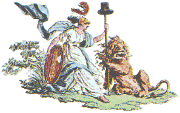Looking back at the first and short-lived Dutch constitution
 Wedged between the Dutch republic and the Dutch monarchy—and like France and the USA born of the Age of Enlightenment—was the short-lived Batavian Republic (1795-1806). It was both the product of its time and of the continuous threat of French occupation.
Wedged between the Dutch republic and the Dutch monarchy—and like France and the USA born of the Age of Enlightenment—was the short-lived Batavian Republic (1795-1806). It was both the product of its time and of the continuous threat of French occupation.
The republic was working on a constitution that would help it move away from provincial powers and to a more unified state. In 1797 the government held what was to be the country’s first national referendum, in which the new constitution was soundly rejected. In the end this rejection only served to hasten the French occupation.
The General Principles of this first Dutch constitution were:
- The goals of a societal union are the security of person, life, honour and possesions, and the improvement of mind and morals.
- The societal pact neither changes nor limits the natural rights of man, except where necessary to reach society’s goals.
- All members of society have an equal right to its advantages, regardless of birth, possesions, standing or rank.
- Every citizen is completely free to have disposal of his possesions, income and the fruit of his ingenuity and labour, and furthermore to do anything that does not infringe upon the rights of others.
- The law is the will of the entire societal body, as expressed by the majority of its citizens or by their representatives. It is equal to all in protection and in punishment. It only pertains deeds, never sentiments. Everything that agrees with the unalienable rights of man in society cannot be barred by any law. It neither orders nor permits that which would conflict with this rule.
- All the duties of a member of society have their basis in this one holy law: do not do unto others what you do not wish to happen to you; do unto others, at all times, as much good as you would wish to receive from them under the same circumstances.
- Nobody is a good citizen but he who excercises the domestic duties of his rank with care, and who furthermore fulfills his societal duties in every way.
- The reverent recognition of an all powerful supreme being strengthens the ties of society, and remains warmly recommended to every citizen.
Modern day republicans still regard this text highly, some of them even considering it better than what we have now. Which, I guess, helps to explain the huge support for the royal house of Orange by the Dutch. Having royalists run the country may not be perfect, but it does seem to be the saner alternative at the moment.

Leave a Reply